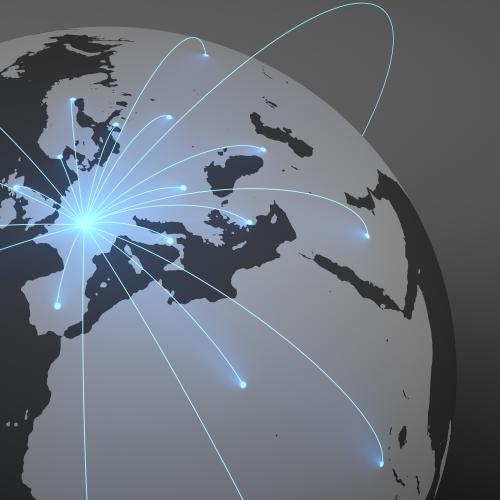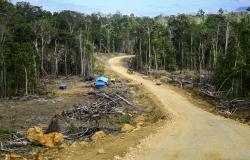Strengthening academic partnerships at regional to global scales
Committing to partnerships with French universities and playing a leadership role in European and international collaborations.

INRAE is strengthening its relationships with key research and academic partners in France, Europe, and the rest of the world. It invests in a few international priority projects of global importance. In this way, we build stronger networks with university campuses and we boost international re-search collaborations.
- From regional academic ecosystems to national coordination networks
- Greater visibility and stronger collaborations within Europe
- Leadership in international scientific cooperation
- Research infrastructures
Focus

- The PREZODE initiative, a first-ever international initiative to prevent future pandemics, built with IRD and CIRAD
- Upcoming launch of a cooperation programme with Africa in partnership with CIRAD
-
INRAE's involvement in the regional higher education and research ecosystem
INRAE is involved in France's national strategy for research and innovation and its site policy. These higher education and research sites (ESR) include universities, engineering and veterinary schools, and research institutes that coordinate their research-education-innovation activities and pool their resources and skills. INRAE's partnership strategy and its integration into the ESR sites are managed at the national level and implemented at the level of INRAE research centres. It leads INRAE to collaborate with a very large number of public and private research actors on its research themes.
For example, on October 15, 2020, INRAE signed its first agreement on objectives and resources with the Université Côte d'Azur to implement a coordinated policy in terms of research and innovation.
Globally attractive and reputable centres for top quality higher education and research
We contribute to the regional structuring of major French university campuses. The goal is to create globally attractive and reputable centres for top quality higher education and research. We contribute to teaching at universities (and other higher education institutions) at more than thirty sites across France. We also work closely with agricultural and veterinary schools, notably those in the Agreenium Alliance. INRAE is moreover supporting scientific coordination among national research organizations: through French thematic research alliances, joint research programming initiatives, and shared national infrastructure.
INRAE is committed to helping lead European research on agriculture, food and the environment. Thanks to the groundwork laid by the European Green Deal and the new Horizon Europe programme, we will focus our efforts on three lines of action:
• Developing research and building impacts on issues highlighted in the European Green Deal
• Encouraging participation in the major European Commission programmes, collaborative tools, networks, and projects associated with the Horizon Europe framework programme
• Expanding involvement in networks and joint strategic actions (e.g., Joint Programming Initiatives, such as FACCE JPI, the Standing Committee on Agricultural Research, the Animal Task Force); structuring bodies (the Bio-based Industries Joint Undertaking, EIT Climate-KIC , BiodivERsA); the initiation of new tasks; and the development of Partnerships within Pillar II of Horizon Europe.
Given the internationalization of research and as a global leader, we are strengthening our outreach and our international engagement. First, INRAE deploys a range of tools to support international scientific cooperation, including framework agreements, international associated laboratories and international research networks. Second, we support incoming and outgoing researcher and doctoral student mobility. Third, we develop international priority programmes aimed at accelerating research on major issues where INRAE has leadership, such as: soils and climate change; agroecology and crop protection; prevention of zoonotic disease emergence; human gut microbiome and health. Moreover, we contribute to the science base of the international agenda by cooperating with UN agencies, UN conventions and summits, as well as with the World Bank and other international organizations.
Digital technologies are multiplying, and analytical technological tools are improving at light speed. There is also a great need to test out novel practices and study living organisms and ecosystems in greater detail. INRAE is thus expanding on its research infrastructure and e-infrastructure policies to boost its competitiveness. We aim to offer public- and private-sector research communities the most effective services available, via partnerships with other French and European infrastructure providers.
